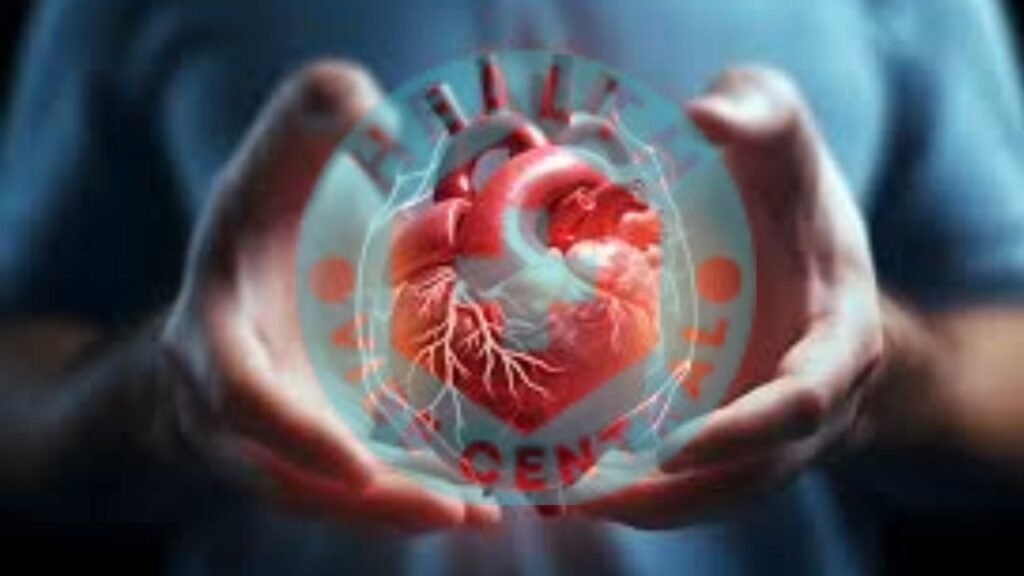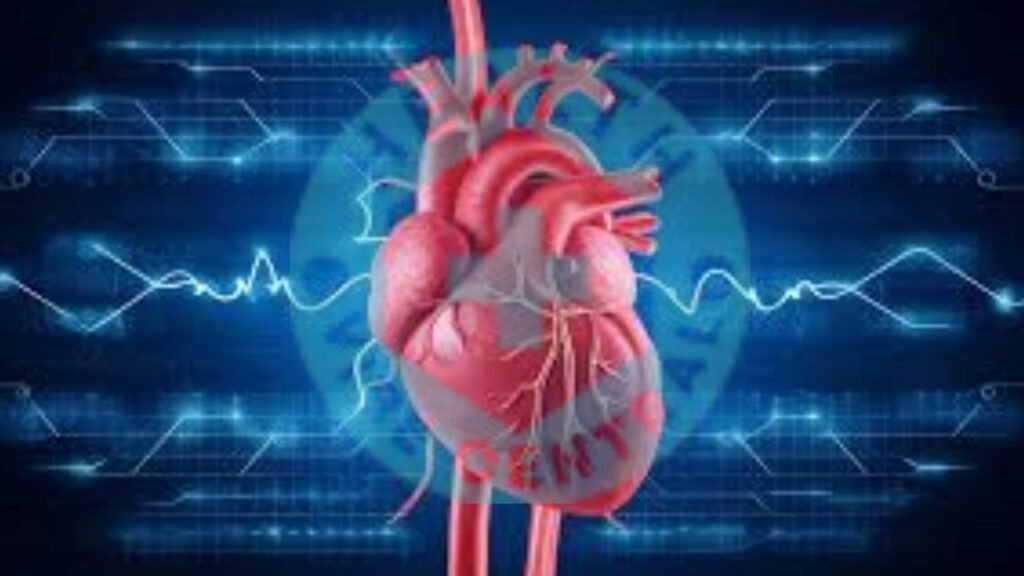Major Risk Factors for Cardiovascular Health
:

Cardiovascular health is one of the elementary aspects of the overall well-being of a person. The heart also the blood vessels form a continuum called the circulatory system that supports each and every organ in the body with the nutrient and oxygen it requires. Interferences to this system can be very severe, and can lead to heart illness, and other cardiovascular and stroke ailments.
According to the present knowledge, the information about risk factors’ predetermination is imperative for the cardiovascular pathologies prevention and the main health promotion. As the author will be pointing out in this article, Cardiovascular Health will be explaining some of the causes of cardiovascular diseases some of which have been discussed below.
1. High Blood Pressure (Hypertension)
Hypertension or high blood pressure is referred as the “quiet’ killer simply because it presents no symptom but is, in fact, destroying the cardiovascular system gradually. When the pressure is also high over time it seems to exert a lot of pressure onto the walls of arteries making them less elastic as oppose to flexible. This can progress to eventually causing blockage of the arteries which ultimately lead to heart attack, stroke and other related complications.
What You Can Do:
- Monitor Your Blood Pressure: This means that one must be checked often so that hypertension can be noticed early Cardiovascular Health and better management done.Adopt a Healthy Diet:
- Reduced intake of salt, saturated fat and cholesterol also enable the blood pressure to be controlled.Stay Physically Active:
- Taking at least half an hour in moderate activity has been seen to help bring down blood pressure.Reduce Stress:
- Stress may lead to high blood pressure hence the importance of practicing relaxation methods such as meditation or practicing yoga.
2. High Cholesterol Levels
Cholesterol is a fat that is built in the liver together with being obtained from some foods. As the body requires some cholesterol to perform some basic operations if the LDL cholesterol or the “bad cholesterols” start to accumulate in the arteries. Accumulation of this substance called plaque narrows the width of the arteries and a denies blood passage or causes blood clots which Cardiovascular Health results in heart attacks and stokes.
What You Can Do:
- Eat Heart-Healthy Foods: Healthier eating entails having more fruits and vegetables, Cardiovascular Health whole grain products and lean proteins while reducing on the foods containing trans fats.
- Exercise Regularly: The study finds that exercise has the capability of elevating the high-density lipoprotein cholesterol also referred to as good cholesterol and lowers low-density lipoprotein cholesterol, also referred to as bad cholesterol.
- Maintain a Healthy Weight: Overweight poses high pressure on the cholesterol level; therefore, understanding ways of reducing extra size is beneficial.
3. Smoking
Smoking or tobacco use comes among the activities that are considered as the causes of preventable cardiovascular disease. Tobacco contains chemicals that cause blood vessels’ damage and encourage plague formation on arteries. Smoking also results in reduction of the blood and oxygen; therefore the heart get strained when having to pump oxygen all around the body. Cardiovascular Health Second-hand smoking also increases one’s risk of getting cardiovascular disease as well.
What You Can Do:
- Quit Smoking: It will be quite evident that the level of deterioration or improvement Cardiovascular Health of the heart is directly proportional to how long one takes to quit the habit of smoking. They include use of group fellowship, nicotine substitute products and counseling as a way of coming out of the habit.
- Avoid Secondhand Smoke: Some places that show second-hand smoking for example restaurants Cardiovascular Health z and bars should be avoided at all times.
4. Physical Inactivity
They concluded that lack of sufficient physical activity would pose as one of the biggest risks or causes of Cardiovascular disease. Exercise also factors positively in the heart’s health and fixes problems such as hypertension, high cholesterol and obesity.
What You Can Do:
- Incorporate Exercise into Your Routine: Cardiovascular Health Make it your goal to do at least 150 minutes of moderate intensity aerobic activity or 75 minutes of vigorous intensity activity per week.
- Break Up Long Periods of Sitting: Exercise can encompass any form of physical Cardiovascular Health movement even light ones such as walking or stretching has some health benefits.
- Find Fun Ways to Move: The fact is that dancing, gardening or cycling Cardiovascular Health for example may be pleasant activities to do and one would not feel like it is a kind of punishment that he or she is doing.
5. Poor Diet
It is worth knowing that the foods that we take have a direct impact on the Cardiovascular Health health of our heart. Saturated and trans fats as well as cholesterol increase the bad cholesterol levels and cause instances of the formation of plaque in the arteries which eventually leads to heart diseases. It has been found that high levels of sodium cause high blood pressure while high levels of sugar increase risks of obesity and diabetes all of which worsen the prospect of heart disease.
What You Can Do:
- Follow a Heart-Healthy Diet: What you eat during the year should be Cardiovascular Health fruits, vegetables, lean proteins, and whole grains. Specifically, the Mediterranean diet is reported to have well-proven cardiovascular healthy beneficial effect.
- Limit Processed Foods: Many highly processed foods contain negative fats, salt, and sugar content in many of them.
- Watch Portion Sizes: Consuming huge amounts of food results to increase Cardiovascular Health in weight which may cause cardiovascular complications.
6. Stress
Stress is part and parcel of everybody’s life but only severe, prolonged stress can bring awful changes in the cardiovascular system of a person. Stress generated over a long time may rise the level of blood pressure and put one into a bad practice like overeating, smoking, or being idle all the times. All these behaviours can lead to increased risks of Heart Diseases.
What You Can Do:
- Practice Stress-Relief Techniques: Stress reduction techniques that include prayer and meditation, deep and specially patterned breathing, yoga, and mindfulness have been known to reduce stress.
- Prioritize Self-Care: Cultivate and spend quality time doing things that are pleasurable and rewarding such as hobbies, friends, and other people among others.
- Seek Professional Support: In case stress reach a level where it is unbearable, then it might be helpful to consult a therapist or a counselor.
7. Obesity
have been known to be associated with obesity as it doubles one’s chances of getting the diseases. Overtime, obesity particularly the abdominal obesity stress the heart, causes high blood pressure, and increase cholesterol level. Another related evil of obesity is that it increases the risk of such diseases as type 2 diabetes that also affect heart’s condition.
What You Can Do:
- Set Realistic Weight Loss Goals: The data revealed that even when this change was as slight as 5-10% loss of body weight this could enhance the factor in heart health….
- Focus on Healthy, Sustainable Habits: Instead, make slow changes to your diet and any type of exercise and not drastic lifestyle changes.
- Get Support: Perhaps, you should consult a nutritionist or join the group of fitness-scouting individuals, or use applications that may display your progress.
8. Family History and Genetics
Some of these risk factors for cardiovascular disease are genetic, meaning you cannot control them while others are lifestyle determined. It is essential to point out that having a family history of a heart disease, it increases one’s probability of having similar conditions as well. There are of course other risks that should be pointed out for those having a familial inclination towards the same disease due to strong genetic backgrounds since other risks can add on the influence of disposition.
What You Can Do:
- Be Proactive with Health Screenings: This is true because people can often go for a check-up when they want to be checked on by a doctor and this will enable one to be checked up on for any signs of illness orASONAPEL.
- Maintain a Healthy Lifestyle: Despite this, there are times that one may inherit genes that put him or her at risk of heart disease, but even this does not mean that one cannot avoid it by leading a healthy lifestyle by eating properly exercising etc.

Conclusion
Cardiovascular health can therefore be defined as the ability of an individual to adequately supply his or her bodily tissues with the necessary nutrients and oxygen and to efficiently eliminate waste matter so as not to hinder the proper functioning of the heart’s pumping process – this is a function of both genetic predispositions and a person’s lifestyle. Although there are some things that one cannot control, such as family history of the disease, many of these risk factors are avoidable such as lifestyle choices such as diet, exercise and smoking. Hence, through assuming direct control of these changeable impacts, the possibilities of having CVD can be minimized and one’s quality of life enhanced.
Meta Description:
>Find out what puts the cardiovascular systems at risk Get to know the measures in controlling high blood pressure, cholesterol, smoking, a proper diet and other issues.
4 thoughts on “Uncovering Major 10 Critical Risk Factors for Cardiovascular Health: What You Need to Know”